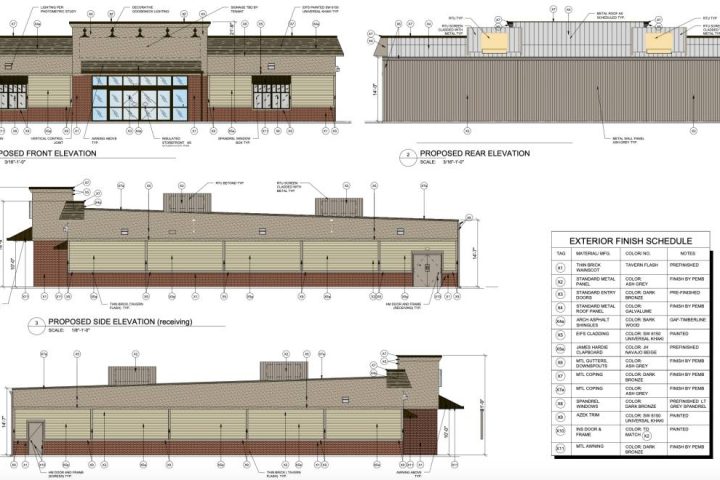MONROE, CT — The Monroe Inland Wetlands Commission unanimously approved a battery storage system and associated utility connections at 50 Cambridge Drive Wednesday.
The battery, which would be connected to Axel Plastics Research Labs’ utility meter, has the capacity to provide emergency backup service in a power outage and would be a source of energy through the grid in the event of an outage affecting Monroe and surrounding communities.
“Eversource could draw energy from the battery to reduce outages and to meet peak demands,” Greg Carey, a project manager with RWE Clean Energy, said at a previous meeting.
He said the application is part of a program in conjunction with CT Green Bank and its Energy Storage Solutions program.
Gareth Wilson, a project manager with BL Companies in Hartford, said the proposal calls for a concrete pad enclosed at the top of the site, approximately 44 feet from the wetlands.
“We do have cables running from that battery unit back to the building and electric room and a transformer inside the building,” he told the commission. “We’re proposing to go overhead to avoid wetlands,” tree trimming to bring in cable, and adding a secondary pad for support.
The only impervious structures would be the pads and the battery unit. The driveway would be replaced with gravel and a straw silt fence would be installed.
Safety concerns
Carey said the applicant gave an indepth presentation to town department heads in Monroe, including the fire marshal.
However, during Wednesday’s meeting Commissioner Benjamin Sabia said he thought the commission should have taken fellow member, Rick Smith’s concerns over a catastrophic failure, such as fire, into deeper consideration during the hearing and allowed him to ask more questions.
Smith said it is a low probability, but in the event of a thermal runaway, firefighters have to get there fast enough to ensure the safety of the public.
“This can power 2,000 homes,” he said of the battery unit. “Thermal events happen, so at the very least, as a commission we should have more information for the fire chief. I want him to say the training is adequate, they have thermal imaging cameras and breathing apparatus.”
“Axel Research is great for Monroe,” Smith added. “It’s not a problem. I just want to ensure we can get to it safely.”
Commissioner Paul Fernandes asked if the fire marshal or fire chief has to approve of the plan.
Kathleen Gallagher, the planning and zoning administrator, said the fire marshal will review the proposal as part of the Planning and Zoning Commission application, but does not review it when it is before wetlands.
Commissioner Jim Stewart said if the battery unit were to catch fire, firefighters would watch it melt and spray water on trees and grass around it to ensure the fire does not spread.
“How many hundreds of thousands of these things are around the country and we have around three fires with the old technology,” Stewart said.
Gallagher said she does not recommend an Inland Wetlands Commission approval that would include fire department training among the requirements.
“I heard them say they will not spray water near any of those units,” Commissioner Mark Zamary said. “If that’s our concern, it’s a moot point.”
“I believe wetlands are in danger of fire with a thermal runaway,” Smith said, adding he wants the public to be safe.
“You can ask the fire marshal to review it and say how the fire department would handle it, but there can be no more additional information in this hearing,” Gallagher said.
“It’s not that we’re not concerned about it, but public safety is not within the purview of this commission,” Chairman Erik Lindstrom said.
Zamary said he heard a battery unit is designed to burn within itself rather than spread.
Smith said safety protocols need to be improved for these units.
Vice Chairman Ryan Kelly said Smith could express his concerns as a resident when the application comes before the Planning and Zoning Commission at its hearing and encouraged him to do so.
While Kelly acknowledged safety is a serious issue, he said it is not something to be addressed by the Inlands Wetlands Commission.
Before the commission voted to approve the application, some conditions were added.
Wetlands Enforcement Officer Andrew Brodtman wanted the applicant to add three white oak trees to replace trees to be removed, and Smith wanted assurances no herbicides will be used to clear away invasive species to be in writing.
All respectful comments with the commenter’s first and last name.






